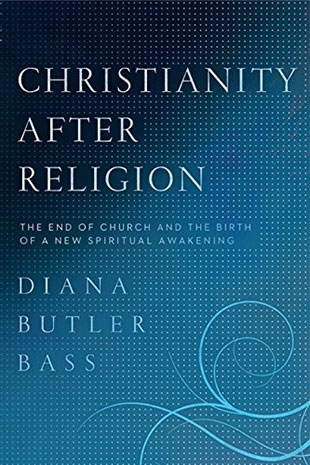"Why are people rejecting the word 'religious' in favor of the word 'spirituality'?
"For much of Western history, the words 'religious' and 'spiritual' meant roughly the same thing, how human beings related to or connected with God in rites, rituals, practices, and communal worship. People did not generally separate the two terms. Historian Robert Fuller points out, however, the popular definitions of the words diverged throughout the twentieth century: 'The word spiritual gradually came to be associated with the private realm of thought and experience, while the word religious came to be connected with the public realm of membership in religious institutions, participation in formal ritual, and adherence to official denominational doctrines.' Not only did the words come to signify different aspects of faith by the early twenty-first century, but the terms 'spiritual' and 'religious' have become laden with emotional connotations. In general, 'spirituality' is taken as a positive term, whereas 'religion' is often negative; spirituality is understood as somehow more authentic, religion as having 'a somewhat cynical orientation.' Indeed, one British researcher found that Americans, Canadians, and British who identified as spiritual were more 'socially desirable' than those who defined themselves as religious — that is, they were more appealing life partners!
"The language of 'spirituality' is certainly different from the language for God and faith that many Christians used as children (or the language their parents used). Because it is a new language, it fosters misunderstanding. Religious people sometimes dismiss 'spirituality' as vacuous or vague, too closely related to 'spiritualism' (the practice of communicating with the dead), Wicca, or some other New Age faith. Others tag spirituality as consumerist or individualistic, lacking intellectual content or any sense of commitment, a fad, 'Oprah religion.'
"But spirituality is neither vague nor meaningless. Despite a certain linguistic fuzziness, the word 'spiritual' is both a critique of institutional religion and a longing for meaningful connection. In a wide variety of guises and forms, spirituality represents an important stage of awakening: the search for new gods. As the old gods (and the institutions that preached, preserved, and protected the old gods) lose credibility, people begin to cast about for new gods — and new stories, new paths, and new understandings to make sense of their new realities. In the process, the old language fails, and people reach for new words to describe the terrain of their experience. 'Spirituality' is one such word, an ancient word, to be sure, but a word that is taking on fresh dimensions of meaning in a fluid and pluralistic religious context. To say that one is 'spiritual but not religious' or 'spiritual and religious' is often a way of saying, 'I am dissatisfied with the way things are, and I want to find a new way of connecting with God, my neighbor, and my own life.' It might not be a thoughtless mantra at all — in many cases, it may well be a considered commentary on religious institutions, doctrine, and piety."
